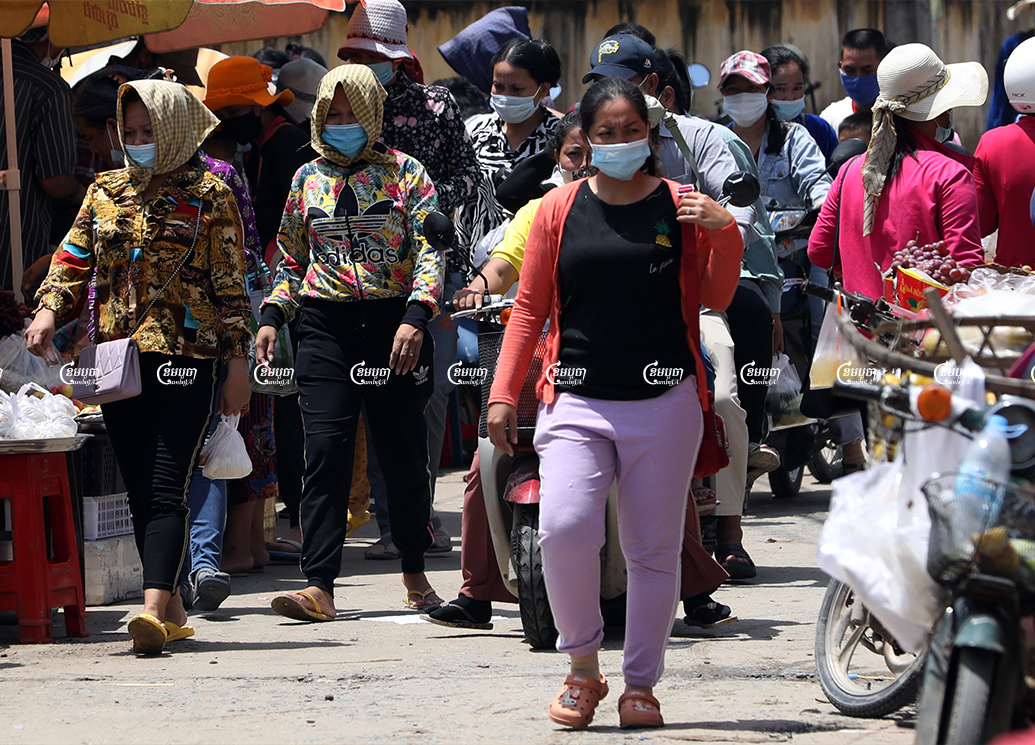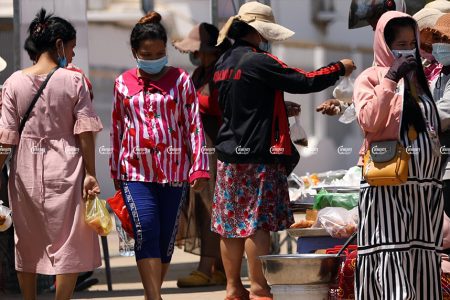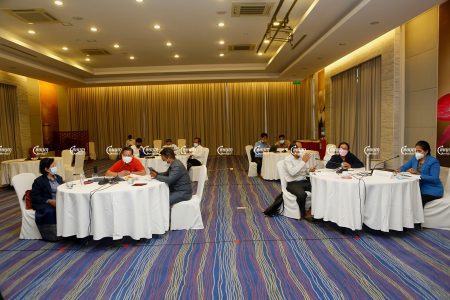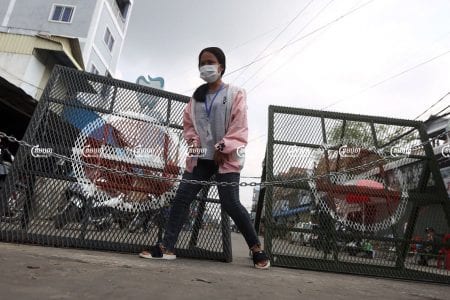The government on Tuesday moved to increase the 2022 minimum wage for workers in the garment and footwear industry by $2, summing up to a monthly salary of $194 in a decision that has left unions and laborers wishing for more.
According to a statement from the Ministry of Labor, Prime Minister Hun Sen had reportedly intervened to encourage the ministry to propose the slight wage increase within the National Council on Minimum Wage (NCMW) negotiating body. Through a series of September negotiations, union groups in the NCMW had ultimately requested a raise of $12 from the 2021 minimum while employers asked for a cut of $16.
The new minimum wage will come into effect on January 1, 2022.
The three-sided NCMW consists of 51 total representatives equally divided between union groups, employers and the Labor Ministry.
Among those 51 members, 45 voted for the monthly wage of $192 while six voted for the union figure of $204. After the prime minister signed his wishes, no representatives voted for the employer-suggested wage of $188.
But even with the salary bump, workers and union representatives told CamboJA the new wage wouldn’t be enough to cover a rising cost of living amid the lingering challenges of pandemic conditions in Cambodia.
Pav Sina, president of Collective Union of Movement of Workers (CUMW), said research has shown that workers’ total family incomes have decreased during the COVID-19 crisis and subsequent economic recession. Due to job losses in other sectors, Sina said, many of these families are now forced to depend solely on the income earned by garment workers.
“[The government] provided $194 for workers’ minimum wage does not meet the requirement of workers’ living,” he said, adding that despite misgivings, the union cannot override the majority vote to accept the wage. “We saw that now, our workers are meeting with difficulties because the salary is low and they eat only cheap food and have no sanitation.”
Sina said that workers already live in crowded conditions with bare amenities due to overstretched budgets. He said both employers and the government should review any abilities to provide benefits beside wages such as additional stipends for food, travel and rental housing.
Ath Thorn, president of the Cambodian Labor Confederation — one of the country’s biggest unions — also said the $2 wage hike was insufficient.
“I think that this amount cannot solve workers’ difficulties,” Thorn said.
Moreover, he added that among 17 union representatives in the NCMW, only six voted for the $12 wage increase advanced by labor organizers. The other 11 members representing workers voted for the government figure, which Thorn said was evidence some unions do not defend benefits for workers.
Though he said the union-proposed wage of $204 would have been better, he said most laborers report monthly living expenses of $250-300, so even that increase might not have been enough. Thorn also advocated for additional, non-salary benefits for workers and said the government might try to hold steady the cost of essential goods.
Van Sou Ieng, president of the industry group Garment Manufacturers Association of Cambodia (GMAC), said the minimum wage negotiation is generally based on seven standardized criteria to ensure fairness.
“For $2, Samdech [Hun Sen] is kind and he wants to help workers,” he said, urging workers to thank the prime minister for his advocacy.
Sou Ieng said employers will lose money to fund the wage increase but that producers will do so in order to help their workers overcome the difficulties of the economic downturn. But in the future, Sou Ieng cautioned, wage increases made outside the seven standardized criteria may alienate outside buyers who currently do business in Cambodia.
“If not done fairly and with evidence, they will not be satisfied and they will go to [invest in] other countries,” he said.
Sou Ieng also said other countries have not increased minimum wages during the COVID-19 pandemic, suggesting Cambodia is an outlier in that regard.
“In fact, we think that it should be decreased,” he said, “because the world thinks that the COVID-19 pandemic is a crisis, so it must decrease.”
That wasn’t much comfort to garment workers who told CamboJA that the wage increase still isn’t enough to cover their costs of living.
Yong Sreylin, 22, is a worker at the Horizon Outdoor garment factory in Kampong Chhnang province. She said growth in the price of essentials has outpaced that of her income.
“I think that I and other workers still find difficulty in our living because the cost of goods and foods have increased more and more but the salary increased only $2,” Sreylin said, adding that her family also has to meet debt repayments of $100 every month to pay off a $3,000 home loan.
Mey Samith, 35, and a worker at the YTC Corporation garment factory in Kampong Speu province, said he had worked for more than 10 years at his current factory and that the new monthly wage increase wasn’t enough to cover a plate of Chinese noodles.
“I think that our workers are not satisfied with this amount but we have no choice,” he said. “I think that all parties should go to meet workers directly to see workers’ livelihoods before they hold the minimum wage negotiation meeting.”
Suon Rithy, 27, works at the XO garment factory along Veng Sreng road in Phnom Penh. She told CamboJA she spends more than $160 per month just on housing and food, not even counting the $100-plus she spends monthly to pay off a bank loan.
“I think that the government should provide $214 for our workers’ salary because goods and foods have increased a lot in price,” Rithy said.
Labor Ministry spokesman Heng Sour acknowledged that questions remain as to how much the wage increase would help workers but pointed out that Cambodia increased its minimum wage in both 2020 and 2021 while other countries in the region did not.
“So the figure from one year to one year is bigger than before, so we can say it’s better — it is definitely better — but how much better is it? That’s a separate story,” Sour said.
For his part, Khun Tharo, program manager at labor rights group Central, did not count the wage increase as a win. He also highlighted the worker representatives that did not back the proposed $12 bump as a sign that some unions are not playing a role in defending labor.
“It is regrettable for our workers,” he said.












